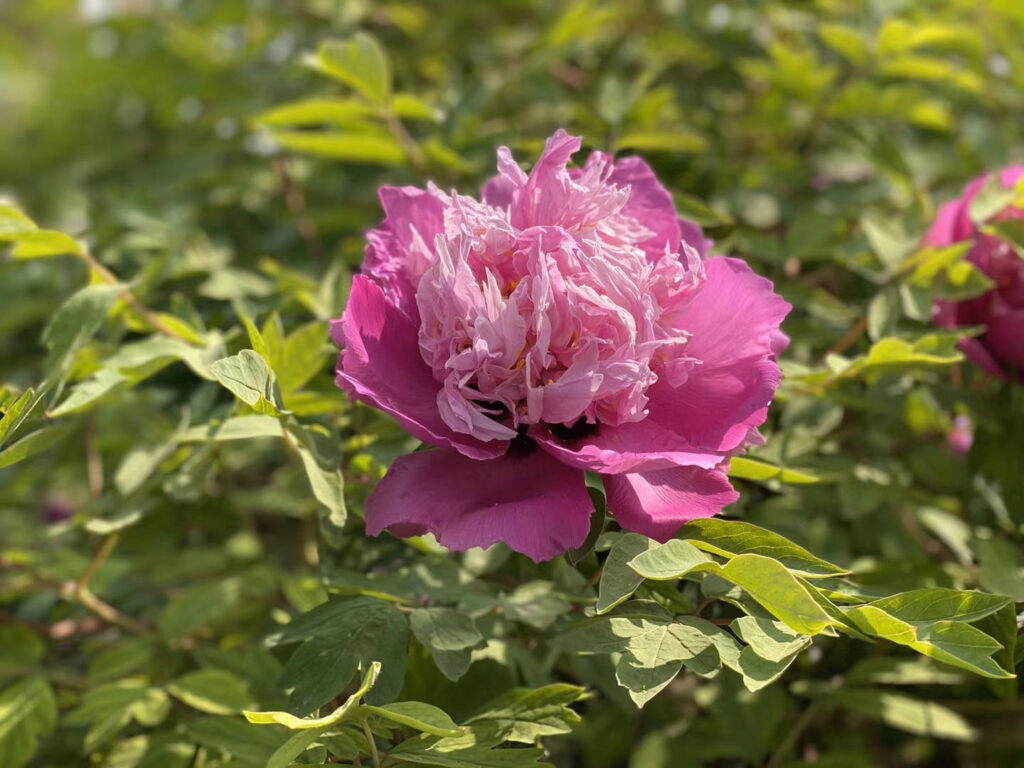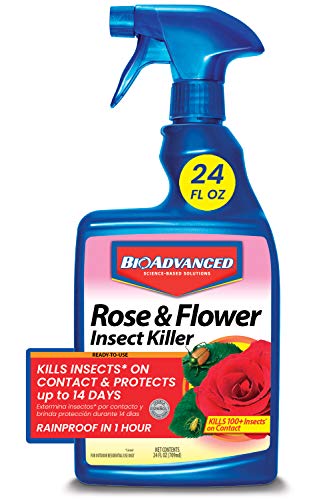Insecticide For Peonies
Peonies (Paeonia species and hybrids) are enjoyed primarily for their showy flowers, available in a range of colors and forms, although their foliage is also considered attractive. These plants can grow across U.S. Department of Agriculture plant hardiness zones 2 through 8, although individual specimens typically have much smaller growing ranges. Ants are frequently seen on peonies, as they are attracted to the peony blossoms. These ants do not harm or benefit the peony, but a handful of other insects are potentially problematic on these plants.
Hoplia Beetles
-
Hoplia beetles (Hoplia callipyge) have just one generation each year, with adults emerging in spring to feed on light-colored blossoms from March through May. Adult beetles, sometimes mistaken for Japanese beetles, are oval, measure about 1/4-inch long and have a reddish-brown head and light-brown wing covers. In sunlight, the beetle is an iridescent silvery green. Feeding by the adults occurs on light-colored flowers and appears as round holes. Heavy feeding can destroy early flowers. Regularly handpicking beetles and disposing of them in a bucket of soapy water or clipping off heavily infested flowers generally offers sufficient control.
Thrips
-
Thrips are tiny, delicate-looking insects that damage peonies and other plants by piercing plant tissue and sucking out cell contents. Their feeding appears as a stippling and scarring of petals and leaves and distorted new growth. Thrips also transmit viral diseases. Healthy, actively growing peonies can handle some amount of thrips feeding. In many cases, beneficial thrips predators and parasites control this pest well unless disrupted by dust or broad-spectrum, persistent pesticides. To minimize their presence and impact, keep nearby areas free of weeds that harbor thrips, avoid excessive or fast-release fertilizer applications, prune off distorted terminals, and knock these weak fliers off of infested peonies with a forceful spray of water. Thrips are relatively difficult to control using chemicals.
Scales
-
A species of armored scale, the oystershell scale, is often the most problematic peony insect pest. This insect typically appears as an immobile bump about 1/8 inch across on stems or leaves where it feeds. Heavy feeding causes leaf yellowing, wilting and premature drop. An infested peony plant may grow slowly and suffer dieback. Natural enemies usually control armored scales well unless disrupted by dust or pesticides. If scale numbers are high, pruning off and disposing of infested portions or applying a thorough spray of horticultural oil in late winter to spring when the scales are in their active crawler stage will address this pest.
Mealybugs
-
Mealybugs are grayish, soft-bodied insects that are usually segmented and feature indicative wax filaments radiating out from their bodies. These slow-moving pests are covered with a mealy wax and tend to cluster in large numbers to feed, appearing as cottony masses in leaf axils and other protected areas. Heavy feeding can slow peony growth and cause dieback. Mealybugs also produce a sticky, sweet substance known as honeydew as a byproduct of feeding. Honeydew attracts ants that protect mealybugs from natural predators and hosts sooty mold fungus growth. Healthy peonies can handle light mealybug activity, but if feeding is heavy, a forceful stream of water or application of an insecticidal soap or narrow-range oil may be warranted.
Insecticide For Peonies
The problem with peonies is that they are a very delicate flower. They are not the kind of flower that can withstand the harsh elements of nature. That is why it is so important to make sure that you protect your peonies when they are in bloom. The best way to do this is by using an insecticide for peonies.
Insecticides for peonies are safe for your flowers and they provide a protective barrier against pests and disease-causing organisms, which can be harmful to your plants. These products come in liquid form and can be applied directly onto the leaves of your plants. They can also be used as a spray or dusting powder on top of soil around the base of your plant’s roots.
There are many different kinds of insecticides available on the market today, but some work better than others depending on what kind of pest problem you are facing in your garden or yard space. For example, if you have problems with insects eating away at young shoots then using an insecticide containing pyrethrin will help protect them from damage caused by chewing insects like aphids or caterpillars because it causes paralysis followed by death so insects cannot move or eat anything else until they die out completely
List Of Insecticide For Peonies
- INSECT KILLER: Kills 100+ insects including Aphids, Caterpillars, Whiteflies, Japanese Beetles, and more
- KILLS ON CONTACT: Kills listed insects on contact
- 14 DAY PROTECTION: Protects against listed insects for up to 14 days
- USE ON: Roses, flowers, plants, and even vegetable gardens
Additional Info :
| Color | White |
| Item Dimensions | |
| Height | 1 Inches |
| Width | 1 Inches |
| Length | 1 Inches |
| Release Date | 2021-11-11T00:00:01Z |
- FOR ORGANIC GARDENING: Can be used up to day of harvest – OMRI (Organic Materials Review Institute) Listed.
- INSECTICIDE/FUNGICIDE/MITICIDE: Three garden products in one!
- READY-TO-USE SPRAY: Spray for complete coverage of all plant tissue.
- FOR USE ON: Roses, flowers, houseplants, ornamental trees and shrubs, fruits and vegetables.
- PREVENTS LISTED FUNGAL DISEASES: Apply weekly to every 2 weeks until the potential for disease is no longer present.
Additional Info :
| Item Dimensions | |
| Height | 0.88 Inches |
| Width | 0.21 Inches |
| Length | 0.37 Inches |
| Weight | 1 Pounds |
- INSECT KILLER: Kills Aphids, Caterpillars, Whiteflies, Japanese Beetles, and more on contact
- 30 DAY PROTECTION: Protects against listed insects for up to 30 days
- USE ON: Roses, flowers, plants, and even houseplants
- RAINPROOF PROTECTION: Rainproof within 1 hour of application
- COVERAGE AREA: Treats up to 34 plants
- RESTRICTIONS: Restricted in CT, MD, & VT. Not for sale, sale into, distribution, and or use in Nassau, Suffolk, Kings and Queens counties of NY
Additional Info :
| Color | Ready-to-Use |
| Item Dimensions | |
| Height | 11.25 Inches |
| Width | 2.19 Inches |
| Length | 5 Inches |
| Weight | 0.00024 Pounds |
Additional Info :
| Release Date | 2018-07-16T12:02:25.253Z |
- Safe
- Extra Concentrated for Long-Lasting Protection
- Natural Ingredients Proven Effective in the Real World
- Large 1 Gallon Container
- Powerful Essential Oil
Additional Info :





